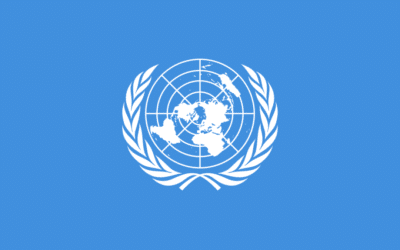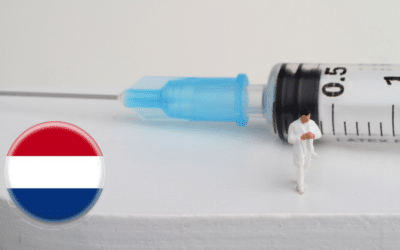On January 17, 2017 the French High Council for Equality between men and women (HCE) published a report on the measures taken in the past 3 years to facilitate access to abortion. Out of the 35 recommendations made by the HCE at the end of 2013, the government has implemented more than two thirds.
Nevertheless the HCE considers that abortion cannot be “a full-blown right” as long as doctors can recourse to a special conscience clause for abortion. In the report this is stated as follows:
« Remove the conscience clause which is explicitly stated in article L.2212-8 of the Public Health Code as follows: « A doctor can never be forced to do a voluntary interruption of pregnancy” as well as for the other health professionals mentioned in the same article. The recourse to “conscience clause” is already accepted in a general manner for all health care workers for all medical procedures.”
In Article L2212-8 the conscience clause appears in the legislative part of the Public Health Code, which contains the laws voted by the Parliament.
The second text, which the HCE regards as another conscience clause, would be, for doctors for instance, the one in Article R.4127-47, which states:
“Regardless of the circumstances, the continuity of patient care must be assured. Barring emergencies or cases where he would be failing to do his altruistic duty, a doctor has the right to refuse care for personal or professional reasons. If he refuses to fulfill his mission, he must notify the patient and transfer to the physician indicated by the patient, the appropriate information for continuing the patient’s care.”
Article R.4127-47 is included in the doctors “Code of Ethics”, the set of rights and obligations for their profession. They are included in the legislative part of the Public Health Code, which contains the decrees and ministerial rulings published by the government.
Therefore, according to the HCE, there are “two conscience clauses », one specifically for abortion, and another one of a more general nature. And both clauses would have the same scope and concern all healthcare personnel. Conclusion, there is one clause too many (that of Public Health Code Art. L2212-8), which must be removed so as not to “stigmatize” abortion compared to other medical procedures.
This argument is deceitful for at least 4 different reasons.
1° The general clause existed prior to the 1975 abortion law. If it was deemed judicious by the legislature to introduce a specific clause when voting this law, it was precisely because doctors needed an increased protection due to the seriousness of abortion. The risk of taking an innocent life is not the same as the risk of refusing to care for a patient, or refusing to prescribe a particular medical treatment.
2° The general clause for doctors has more restrictive coverage. It begins with the following principle: “Regardless of the circumstances, the continuity of patient care must be ensured.” This principle limits a doctor’s discretionary authority in at least two cases mentioned in the text, “cases of emergency and cases where he would be failing to altruistic his duty”. In fact this legal framework is more restrictive and binding for the doctor than the solemn statement whereby “a doctor can never be forced to do a voluntary interruption of pregnancy.”
3° The general clause is by nature regulatory and not legislative. This is certainly a major difference. A law is a much stronger guarantee of liberty than a ministerial decree. A law can only be changed by another law discussed in Parliament, with debates, amendments, votes, possibly liable to censure by the Constitutional Council, etc. A decree can be modified overnight by the government without taking heed of public opinion or elected officials. If the conscience clause is removed from Art. L2212-8 of the Public Health Code, which is legislative, only Art. R.4127-47, which is regulatory and therefore less defensive, will remain.
4° The general clause does not apply to all healthcare personnel. It is true that midwives do have a general clause similar to that for doctors (Public Health Code Art. R.4127-328) as do nurses since last November (Art. R.4312-12 of the same code). Nevertheless these are still general clauses that are regulatory in nature, thus the same restrictions and conditions apply as those for doctors (see analysis above in N° 2 and N°3). Furthermore, there are additional professionals who may be called upon to be directly or indirectly involved in an abortion, such as nurse’s aides. However the specific clause for abortion clearly states that “No midwife, nurse, nor any medical auxiliary personnel regardless of their position, can be forced to participate in abortions”.
HCE’s request to remove the specific conscience clause for abortion is inadmissible, because it is based on an inaccurate analysis of the current legislation. It is based more on an ideological approach than a practical necessity: there is no real problem to abort due to an exaggerated recourse to freedom of conscience.
In fact, not only should this conscience clause not be removed but it should, on the contrary, be reinforced. Many cases of discrimination have been observed, during medical training or employment interviews, at the expense of young people who do not wish to perform abortions. Furthermore, one profession is not covered by this clause, although involved in medically-induced abortions: pharmacists. In fact, pharmacists may be forced to directly participate in abortions, and required to provide products for medical abortions to be performed by doctors or midwives. It is paradoxical that dentists and orthopedists are covered by this conscience clause as medical auxiliary personnel, but not pharmacists.
There are only three conscience clauses for healthcare personnel: one for abortion, one for sterilization (Public Health Code Art. L2123-1) and one for human embryo research (Art. L2151-7-1 of the same code). In every instance, these are serious irreversible procedures affecting the lives of human beings, those already conceived, or else the body’s integrity by removing the capacity to procreate. For these reasons it is completely legitimate to protect the freedom of conscience of those who refuse to perform such procedures.
Freedom of conscience is an invaluable right, protected by the French Constitution and major international texts. Trying to contest this for abortion cases would weaken this very premise and open the door more easily to further attacks.


![[Press release] – Alliance VITA’s UDV Bioethics Conference returns in January 2023](https://www.alliancevita.org/wp-content/uploads/2022/12/Article-CP-Alliance-VITA-400x250.jpg)
![[CP] – Citizens’ Convention on the End of Life: Alliance VITA will Take Part Guilelessly](https://www.alliancevita.org/wp-content/uploads/2022/12/CP-Convention-citoyenne-fin-de-vie-400x250.jpg)
![[CP] – Abortion in the Constitution: A Confiscated Debate Far from Reality](https://www.alliancevita.org/wp-content/uploads/2022/07/avortement-constitution-décryptage-400x250.jpg)
![[Press Release]: Abortion Prevention Policy Urgently Needed](https://www.alliancevita.org/wp-content/uploads/2021/01/PPL-IVG-400x250.jpg)
![[Press Release] – The Ethics Committee’s Blatant Contradiction on Palliative Care, Assisted Suicide and Euthanasia](https://www.alliancevita.org/wp-content/uploads/2022/04/FA-header-CCNE-400x250.jpg)
![[Press Release] – Calling for Insurance Companies, to Consider Their Duty of Discretion Rather than Pushing Euthanasia](https://www.alliancevita.org/wp-content/uploads/2015/03/fin-de-vie-280x250.png)

![[Press Release] Alliance VITA’s Response to the 2021-2024 Palliative Care Plan](https://www.alliancevita.org/wp-content/uploads/2017/12/soinspalliatifs-1-400x250.jpg)





![[Press Release] URGENT: Judge Orders Mediatransports to Resume Alliance VITA’s Advertising Campaign](https://www.alliancevita.org/wp-content/uploads/2020/01/Mediatransport-handicap-et-paternité-400x250.jpg)






![[Press Release] European Elections: VITA Focuses on Fragile Generations](https://www.alliancevita.org/wp-content/uploads/2019/05/generations-fragiles-1-400x250.jpg)


![[Press Release] Following Wide-Scale Public Debates: French Opinions on Revising Bioethics Law](https://www.alliancevita.org/wp-content/uploads/2019/06/pma-2-400x250.jpg)
![[Press Release]: Alliance VITA Beckons European Electoral Candidates to Focus on Vulnerable Generations](https://www.alliancevita.org/wp-content/uploads/2018/04/caroline_roux-1-400x250.png)
![[Press Release] New Death Sentence for Vincent Lambert by French Court Order](https://www.alliancevita.org/wp-content/uploads/2019/04/conseildetat-1080x675-1-400x250.jpg)









![[Press Release]: Alliance VITA Denounces Attempt to Abolish Conscience Clause in French Health Bill Reform](https://www.alliancevita.org/wp-content/uploads/2019/03/objectiondeconscience-1080x675-1-400x250.jpg)
![[Press Release] Parliament’s Report on Bioethics: Tumultuous Propositions which Undermine Human Rights](https://www.alliancevita.org/wp-content/uploads/2019/01/bioethique-2-400x250.jpg)
![[Press Release] Alliance VITA Announces 2019’s Bioethics Conference on « The Value of Life »](https://www.alliancevita.org/wp-content/uploads/2018/12/udv2019-1080x675-1-400x250.jpg)

![[PR] Keep Your Hands Off My Daddy: counter demonstrations in 17 cities](https://www.alliancevita.org/wp-content/uploads/2018/11/touchepasamonpere-tugdualderville-1080x675-1-400x250.jpg)
![[Press Release] "Keep Your Hands Off My Daddy!" Campaign Launched](https://www.alliancevita.org/wp-content/uploads/2018/11/touchepasamonpere_ladefense-1080x675-400x250.jpg)
![[Press Release] Alliance VITA Will Launch National Campaign in November to Protect Children’s Best Interest](https://www.alliancevita.org/wp-content/uploads/2018/10/enfance-400x250.jpg)
![[Press Release] Court of Cassation / Surrogacy: Alliance VITA Speaks Out](https://www.alliancevita.org/wp-content/uploads/2018/10/courdecassation-1080x675-1-400x250.jpg)
![[Press Release] French Bioethics Law: CCNE Ignores Ethics](https://www.alliancevita.org/wp-content/uploads/2018/09/ccne-1080x650-400x250.jpg)

![[Press Release] French Bioethics: State Council Favors Individual Interests vs. Children’s Rights!](https://www.alliancevita.org/wp-content/uploads/2018/07/enfant-triste-1080x675-1-400x250.jpg)
![[Press Release] ART and Children’s Rights: A warning from Alliance VITA](https://www.alliancevita.org/wp-content/uploads/2018/06/action-12-juin-5-1080x675-400x250.jpg)
![[Press Release] French Bioethics: Warning against commodification of the human body](https://www.alliancevita.org/wp-content/uploads/2018/06/egb-1080x675-1-400x250.jpg)

![[Press Release] Clandestine Showroom for Reproductive Techniques (ART) Opens in Paris](https://www.alliancevita.org/wp-content/uploads/2018/04/showroom_vita-1080x675-1-400x250.jpg)
![[Press Release] Euthanasia Disguised as Healthcare in France!](https://www.alliancevita.org/wp-content/uploads/2018/04/cese_findevie-1080x675-1-400x250.jpg)
![[Press Release] Euthanasia: Alliance VITA Protests Attempts to Force Laws Through](https://www.alliancevita.org/wp-content/uploads/2018/01/euthanasie-1-1080x675-1-400x250.jpg)
![[Press Release] National Consultations on Bioethics in France: Alliance VITA’s Agenda](https://www.alliancevita.org/wp-content/uploads/2018/01/bioethique-1080x675-1-400x250.jpg)

![[Press Release] « Anticipate before Dying »: Alliance VITA’s awareness campaign](https://www.alliancevita.org/wp-content/uploads/2017/10/anticipons-2-1080x675-1-400x250.png)
![[Press Release] MAP without a father: Alliance VITA involved in defense of children](https://www.alliancevita.org/wp-content/uploads/2017/09/PMAsansPere-1080x675-400x250.jpg)
![[Press Release]: Alliance VITA protests fatherless ART](https://www.alliancevita.org/wp-content/uploads/2017/06/Matignon-e1498662862342-2-400x250.jpg)
![Ethics Committee + ART: Convoluted and Non-consensual Announcement [Press Release]](https://www.alliancevita.org/wp-content/uploads/2017/06/PMAsansPere1-2-400x250.jpg)

![[PR] The French Government Has Fallen, But the Urgencies Remain](https://www.alliancevita.org/wp-content/uploads/2024/12/Le-gouvernement-tombe-les-urgences-demeurent-400x250.png)
